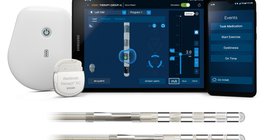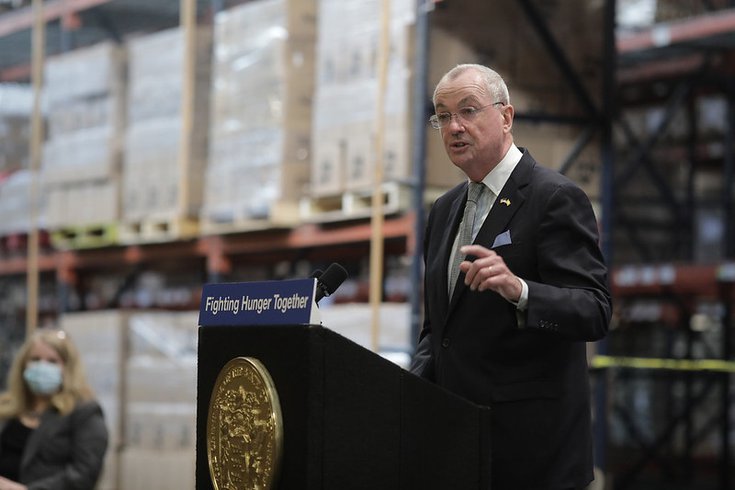
August 11, 2020
 Edwin J. Torres/New Jersey Office of the Governor
Edwin J. Torres/New Jersey Office of the Governor
The purpose of the state's directive is to ensure preparedness for another potential surge of COVID-19 within long-term care facilities, New Jersey Gov. Phil Murphy said.
New Jersey is providing nursing homes with the groundwork to begin reopening to visitors indoors and resuming normal operations amid the COVID-19 pandemic.
However, all long-term care facilities across the state will be mandated to follow certain criteria through a four-phase reopening process, according to a directive issued by New Jersey Department of Health. All nursing homes are currently in Phase 0.
Once facilities no longer have active outbreaks and implement statewide protocols, they will be permitted to advance in stages.
A COVID-19 outbreak is considered over when a facility has 28 days, or two incubation periods, with no new positive tests among residents and staff.
Long-term care facilities must be fully staffed and have a plan for additional staffing in case of another outbreak or emergency, and staff testing must continue to be conducted weekly. Adequate PPE must be available to staff for both present use and stockpiled for future need.
Nursing homes must develop a COVID-19 outbreak plan that consists of lessons learned from the pandemic and a communications strategy with residents and families about potential cases. The plan must be posted online.
Facilities are required to bring in an infection control service within two months or hire a full-time infection control employee if they have more than 100 beds. Facilities with ventilator beds are required to hire an infection control employee too.
Along with meeting several benchmarks, nursing homes must employ a series of infection control protocols upon restarting normal activities.
Visitors must be screened upon arrival, such as through temperature checks. Guests must wear a face mask and practice social distancing while at the facility.
Nursing homes are required to implement a plan that limits both visitation hours and the number of visitors allowed in the facility at a given time. Residents will be limited to two guests at a time. Facilities should seek out visitation areas that allow for social distancing if a resident is in a shared room.
Nursing homes should also receive informed consent from visitors and residents acknowledging that they are aware of the risks of exposure to COVID-19 and that they will follow rules set by the facility.
Guests are required to monitor themselves for COVID-19 symptoms for at least 14 days after their visit and should immediately notify the facility if they experience symptoms.
A total of $155 million is being made available by the state for long-term care facilities to safely reopen. Roughly $25 million will be dedicated to assisting nursing homes with weekly COVID-19 testing, as facilities will be granted priority access to Rutgers University’s saliva-based test.
New medicaid funding worth $130 million will be available to nursing homes starting in October. Of that, $78 million will be used to increase wages for certified nurse aides and $52 million will assist facilities in supporting COVID-19-related infection control and compliance.
However, funding could be stripped if a nursing home fails to meet the statewide guidelines or is found to have repeated infection control failures.
The purpose of the directive is to ensure preparedness for another potential surge of COVID-19, Gov. Phil Murphy said.
“Throughout this pandemic, one of the most-impacted communities in our state has been the residents and staff of our long-term care facilities,” Murphy said.
“Today’s announcement will allow facilities to meet the ongoing challenges created by the COVID-19 pandemic, while also ensuring both high-quality care and the health and safety of residents and staff going forward. And, most importantly, it will allow for residents to safely reunite with loved ones.”
More than 30 million units of PPE have already been distributed to nursing homes, and infection-control surveys have been completed in 467 facilities across the state.
Over 310,000 coronavirus tests have been completed on residents and more than 495,000 tests have been completed on staff since COVID-19 testing became mandatory in long-term care facilities in May.
Additionally, the COVID-19 percent positivity rate is down from 6% in May to 1% in July among residents. That percentage dropped from 3% to less than 1% among staff during the same time frame.
There have been 620 long-term care facilities that have experienced COVID-19 outbreaks since the start of the pandemic.
There have been 37,590 positive coronavirus cases and 6,966 deaths due to COVID-19 among residents and staff in facilities across the state.
Those numbers account for roughly 20% of New Jersey’s total number of coronavirus cases and just under 50% of the statewide death toll due to the virus.
While long-term care facilities have been closed to the public since the onset of the pandemic, outdoor visits by appointment have been allowed since June.
Follow Pat & PhillyVoice on Twitter: @Pat_Ralph | @thePhillyVoice
Like us on Facebook: PhillyVoice
Add Pat's RSS feed to your feed reader
Have a news tip? Let us know.